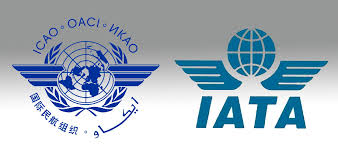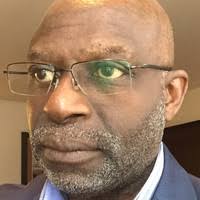- Ogun Airport: Paradigm shift, stark dichotomy from the past
- Terminally ill retired AVM dies onboard BA
- IATA age limit rejection by ICAO sparks pilots’ mixed reactions
- Kuku justifies N712bn Lagos airport rebuild project, says Terminal I obsolete
- Experts To Discuss Infrastructural Growth At Transport Summit
IATA age limit rejection by ICAO sparks pilots’ mixed reactions

- Age rule irrelevant if pilots are healthy, say Sanusi, Olumide
- Yadudu, Caulcrick disagree
The rejection last week Friday of the proposal of the International Air Transport Association (IATA) to the International Civil Aviation Organisation (ICAO) to increase pilot retirement age to 67 from 65 has elicited sharp reactions from notable pilots in the Nigerian aviation industry, while the Air Line Pilots Association, the largest airline pilots union in the world, applauded the decision. Over 80,000 pilots are represented by the union.
Commercial aviation enforces a mandatory retirement age that serves as a safeguard against potential health and performance risks, with IATA calling for the mandatory pilot retirement age to be raised to 67 from 65 at ICAO’s meeting in Montreal last month.

Part of the suggestion or position of IATA is on pilots’ age limit on multi-pilot international flights, with the clearing house for more than 300 global airlines supports lifting the multi‑pilot limit to 67, retaining the existing cockpit safeguard of at least one pilot under 65 and pairing the change with stronger, standardised medical oversight.
“The proposed increase to age 67 years is a cautious but reasonable step consistent with safety,” the association said in the proposal, noting that when the age was increased from 60 to 65 in 2006, there was no increase in problems.
IATA also cited Australia, New Zealand and Canada, which do not have maximum age limits for pilots.

Right now, both the United States, Nigeria, many other countries and ICAO, which is part of the United Nations and regulates international flights, require pilots to retire when they reach 65.
Managing Director of Aero Contractors, Capt. Ado Sanusi said he wouldn’t know ICAO’s reasons for the rejection of the age increase of pilots to 67 from 65, but supported IATA’s argument for it.
He disclosed that IATA’s argument on that I don’t know what ICAO’s argument on that is possibly because of the general life expectancy in the world that has increased while healthcare, he said, has improved generally over the past 50 years with innovation in the medical field, which he admitted has equally increased tremendously.
He said, “People are now doing preventive medicine rather than curative medicine. People live longer, and they are quite strong even at the age of 65. IATA is also saying this would help bridge the gap because of the shortage of pilots and the increased demand for pilots. We want to keep the well-experienced pilots to make sure they train the incoming ones.
“I think IATA has a very good argument. I don’t know what ICAO’s reason is to reject it, but scientifically, of all major medical journals, the innovation over the past five decades has shown that people are living longer, healthier, people are more productive even after 60.”

A former Managing Director of Aero Contractors and Virgin Nigeria, Capt. Dapo Olumide said the sky does have a limit when it comes to the age of airline pilots, unlike many careers where individuals may choose to continue working well into their later years.
“What differentiates a brain surgeon from a pilot? Why should a pilot be restricted to the age of flying when it is a health-related issue? If he is healthy up to the age of 67, why are you prohibiting him from flying when you have people who are 30 years old having heart attacks, having so many health issues? It is not about age, it is about the individual’s health”.
“The age 65-67 rules are irrelevant because it is based on an individual’s health and are determined by a bi-annual medical exam.”
Former Rector, Nigerian College of Aviation Technology (NCAT), Zaria and an economist, Capt. Sam Caulcrick said the major reason for the age extension proposal from IATA was simply to bridge the dearth of pilots globally.

“The IATA’s interest is just to close the gap because they need pilots, they don’t want to train. Let the airlines invest in manpower training, but they don’t want to do that. You know that pilot training is very expensive. I think they are telling them to go and train more people”, Caulcrick added.
A former Managing Director of the Federal Airports Authority of Nigeria (FAAN), Capt Rabiu Hamisu Yadudu, welcomed the rejection by ICAO not to grant the request of IATA, adding that no matter how you look at it, the 65-year age limit is enough for pilots.
Yadudu further stated that age affects pilots by potentially decreasing physical attributes like strength and vision, impacting cognitive functions such as reaction time and memory, and increasing the likelihood of age-related medical conditions, noting that 65 years is enough for anyone to build a career and retire to enjoy life in retirement.
Although experience often provides a compensatory benefit and rigorous medical checks mitigate some risks.
Some aviation unions have long opposed raising the age, citing safety concerns.
President of Airline Pilots Association, Jason Ambrosi, said raising the pilot retirement age is a solution in search of a problem that distracts from the pressing needs of the industry, like modernising the air traffic control system.

“The United States leads the world in aviation, and we should resist any political attempts, especially those not backed by data and science, that would disrupt the US aviation system and put us outside international standards.”
Google+


[…] not all industry voices shared this view. Speaking to Aviation Metric, Managing Director of Aero Contractors, Capt. Ado Sanusi said he supported IATA’s argument to […]
I must say this article is extremely well written, insightful, and packed with valuable knowledge that shows the author’s deep expertise on the subject, and I truly appreciate the time and effort that has gone into creating such high-quality content because it is not only helpful but also inspiring for readers like me who are always looking for trustworthy resources online. Keep up the good work and write more. i am a follower.